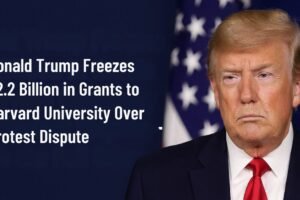
In a moment that has touched the hearts of billions, Pope Francis, the spiritual shepherd of the Catholic Church and a global icon of humility and reform, passed away on Easter Monday at the age of 88. The Vatican confirmed that the pope died of a stroke and heart failure at 7:35 a.m. local time at his modest residence in Casa Santa Marta, the guesthouse he chose over the traditional Apostolic Palace to reflect his belief in simplicity and service.
Known worldwide for being the “People’s Pope,” Pope Francis redefined papal leadership by championing the rights of the poor, calling for climate action, embracing interfaith dialogue, and confronting long-standing issues within the Church, including clerical abuse and financial transparency. His death comes just a day after Easter Sunday, the holiest day in the Christian calendar, where over 1.4 billion Catholics celebrate the resurrection of Jesus Christ. Despite his declining health, the pontiff made a public appearance at St. Peter’s Basilica, where he was seen smiling and waving to thousands gathered in celebration.
Though Pope Francis refrained from delivering the full Easter address due to his frail condition, he offered blessings from the popemobile, pausing to greet children and bless infants—a gesture symbolic of his deep connection with everyday people. Just hours before his passing, the pope met briefly with U.S. Vice President JD Vance, who later expressed his condolences on social media, stating, “My heart goes out to the millions of Christians all over the world who loved him. It was an honor to see him on Easter Sunday. His legacy will continue to inspire generations.”
Elected in 2013 as the 266th pope and the first from the Americas, Pope Francis—born Jorge Mario Bergoglio in Buenos Aires—shattered centuries-old traditions and expectations. He was the first Jesuit pope and the first to take the name Francis, inspired by Saint Francis of Assisi, a figure revered for his devotion to the poor and the environment. True to that inspiration, the pope’s nearly 12-year papacy emphasized compassion over condemnation, inclusion over exclusion, and dialogue over division.
Throughout his tenure, Pope Francis was known for his bold reforms. He published the landmark encyclical Laudato Si’, urging global leaders to confront climate change and care for the Earth as a moral imperative. He reformed Vatican financial practices, held clergy accountable for abuse scandals, and repeatedly called for peace in war-torn regions. His global outreach efforts included visiting refugee camps, embracing migrants, and washing the feet of prisoners—acts that powerfully demonstrated his belief in mercy, humility, and dignity for all.
Health struggles increasingly plagued the pope in recent years. Earlier in 2025, he suffered a severe bout of double pneumonia and spent five weeks in the hospital. Doctors at one point believed he wouldn’t recover. Despite chronic illnesses including type II diabetes, hypertension, and previous episodes of respiratory failure, Pope Francis remained active in his duties. His resilience was on full display during Holy Week, where he surprised observers with his strength and grace.
As candles are lit across continents and tributes pour in from religious and political leaders alike, one truth remains clear: Pope Francis did not just lead a Church—he led a movement rooted in compassion, humility, and unwavering faith. His death may mark the end of a papal era, but his spirit will continue to shape the soul of the Church for generations to come.
Stay tuned to ibizznews for further updates.
Also Read
Oppo K13 5G Launched in India with 7000mAh Battery, Snapdragon Chip & 120Hz AMOLED Display – Starts at ₹17,999
US Vice President JD Vance’s India Visit: All Eyes on Trade Talks with PM Modi Amid Global Tensions
Aishwarya Rai & Abhishek Bachchan Quell Divorce Rumours with United Anniversary Post




